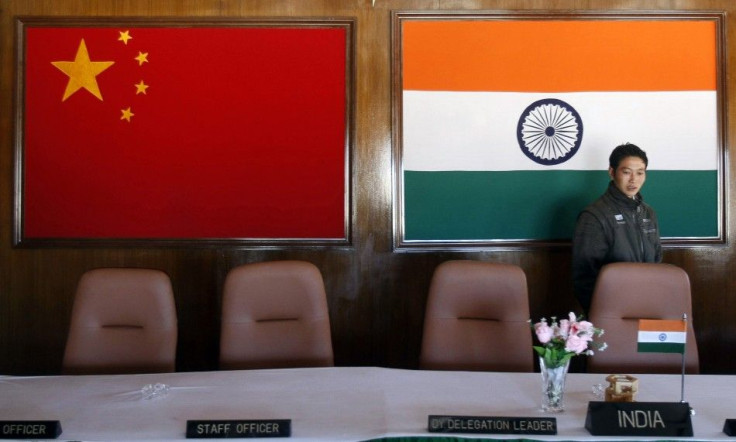India's Agni-5 Missile Launch Draws Careful Response From China

With the successful launch of its Agni-5 missile, India joins China as the only other Asian state able to field a long-range ballistic missile. In fact, the Agni-5 may have been developed with China foremost in mind: News media in India don't shy away from calling it a China killer.
Although India's nuclear arsenal remains smaller and less advanced than China's, it has already achieved three important criteria necessary for it to be considered a significant nuclear deterrent. First, it can hit all of China's major cities; second, being road- and rail-mobile, it is difficult to hit; and third, the missile can carry multiple warheads, making it harder to destroy in flight.
And yet, the response from China, at least officially, has been muted.
China and India are both important developing countries and emerging economies, said Liu Weimin, a spokesman for China's Foreign Ministry, to reporters in Beijing on Thursday. We are not rivals, we are co-operative partners.
However, nestled within the response, Liu included a subtle reference to the conflict, saying we should both cherish the fact that our current good relations were hard to come by.
Although economic relations between the two states are growing steadily, each nation continues to feel slighted by the other over a border dispute along the western and eastern ends of the Himalayas. Many in the Indian defense community feel threatened and hemmed in by China's partnership with Pakistan, India's archenemy. And the Indian public can sometimes still harbor bad feelings over China's victory in a 1962 border clash.
Analysts in Asia and elsewhere are also quick to point out that India feels increasingly concerned about China's deployment of naval vessels in the Indian Ocean, as well as its construction of seaports there.
Whatever Chinese officials are saying about the launch, commentary from international relations scholars and defense analysts in China offers a different picture. While some are dismissive of India's economic and military growth, increasingly larger numbers of Chinese defense analysts are warning of India's future potential to compete with, and threaten, China. Some analysts point to India's improving relations with the U.S. as a means to contain China. They are likewise concerned about India and Russia's close military relations, which has greatly benefited India's defense industries. Most recently, Russia leased a powerful nuclear-powered attack submarine to India.
Chinese observers will also be quick to note that like their own government, India is spending more on defense. India defense spending in the 2012 to 2013 period rose 17.8 percent over the previous year, to $40 billion a year.
Mutual concerns aside, both countries seem to be making efforts to promote a better understanding of each other's military forces. In 2007 their armies held a historic joint exercise together, and in late 2011 there were reports that the two would hold additional war games together in 2012.
© Copyright IBTimes 2024. All rights reserved.





















